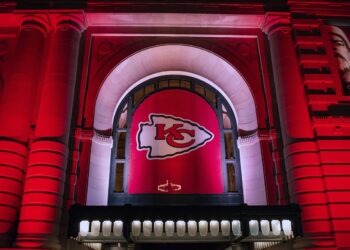The Premier League is a behemoth. There are fixtures that are watched by tens of millions of people – on every continent as people want to be up-to-date with what is going on in the competition.
Manchester City and their quest to stay dominant has been the main story of recent years with Liverpool and Arsenal coming close to knocking them off the perch.
But how did the league become so massive? Only starting out in 1992, it did not take long for the Premier League to turn itself into a cultural sensation. People still think about eras of the Premier League, including times when Manchester United dominated or when Arsenal had the “invincibles.” We explore more about the history of the top English league…
The Gambling Industry
Betting on football is a major activity in markets like the UK. Gambling has been popular in British countries for a long time and within the Premier League there are a vast number of markets available. People who bet on it now have more choices than ever – from straightforward bets on the outcome to more nuanced options like in-play betting.
There are websites including Thunderpick where people can bet on fixtures in top sports leagues and use cryptocurrency. The Premier League attracts a modern and tech-savvy audience who will know about decentralized currencies and many of them may use crypto betting sites now for their gambling on the games. Cryptocurrency sponsors have been seen on Premier League shirts and this powerful marketing relationship can work both ways.
Sponsorship from betting companies and crypto companies also plays a role in the league’s visibility. Gambling doesn’t inherently make the Premier League popular but it does bring in a significant number of viewers who are invested in the outcome of the matches and people who strive to make loads of predictions.

King of lists WatchMojo puts the Premier League at number one on their list of top-viewed leagues. So, it is inevitable that some players will want to bet on the sport for entertainment. Markets for individuals as well as teams are also very popular as people follow the players. Erling Haaland continues setting records and gamblers as well as fans are watching the current top players.
Social Media and Digital Engagement
The digital age has played a significant role in boosting the Premier League’s popularity. Through platforms like X, fans can interact with the clubs and even players who tweet and chat with fans – creating a 24/7 football culture. Social media provides instant access to highlights and other content and loads of fans have social accounts where they track their favorite players.
The rise of fantasy football has also contributed to the Premier League’s growing fanbase. Fans from around the world participate in fantasy leagues. Over 10 million players are involved in choosing players from Premier League teams to form their virtual squads, and statistics are gathered all the time to award points. This activity keeps fans engaged throughout the season, even if they do not directly support a Premier League team.
Broadcast Rights
The league benefits from an unparalleled level of international engagement due to the broadcast rights which sees Premier League matches broadcast to over 200 countries with millions of fans tuning in every week. Clubs have a global fanbase with cities around the world forming supporters’ clubs. This global expansion has been made possible by the league’s focus on accessibility.
Matches are aired at times convenient for fans in different time zones, ensuring that followers from Asia and the Americas can watch their favorite teams play live. Some teams even go on tours so people can watch them in other countries.

Superstar players are a huge draw. Like Lebron and his financial empire, there are players like Ronaldo and Messi who make a fortune in areas like sponsorship to go with mammoth salaries. Part of this is because they can be seen in a lot of different households all over the world.
A Cultural Melting Pot
As well as the game and the way that it is now played (at an incredibly high standard) the Premier League serves as a home for all. The international nature of the Premier League also helps in making it more attractive globally. Top players from various countries play in England, which expands the league’s viewership to those countries.
We see stars like Mo Salah flying the flag for Egypt and plenty of diversity among the players. This adds a rich flavor to the league that resonates with fans from different backgrounds. It also reinforces the notion that the Premier League is a global league rather than one strictly centered on England.
Conclusion
The Premier League is one of England’s most successful entertainment exports. A country known for culture and sports has created something that resonates around the world. Nobody could have predicted in the 1990s how big this league would become.







